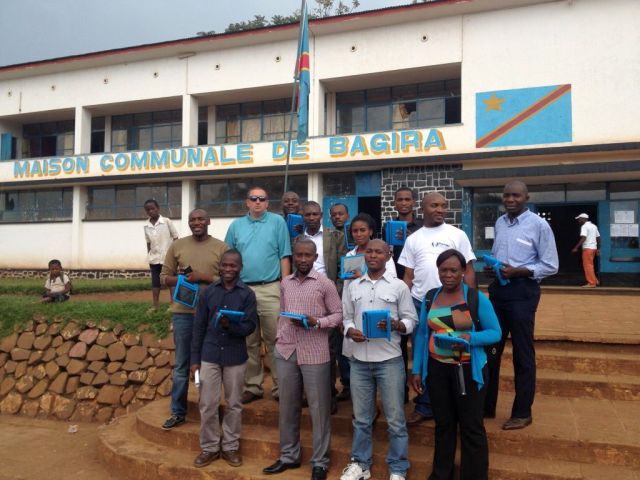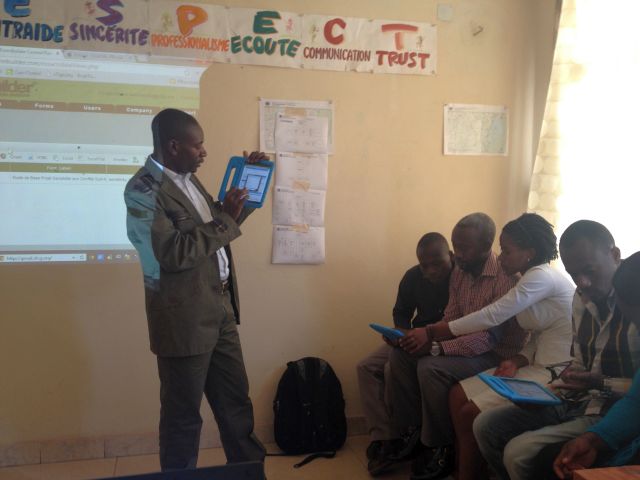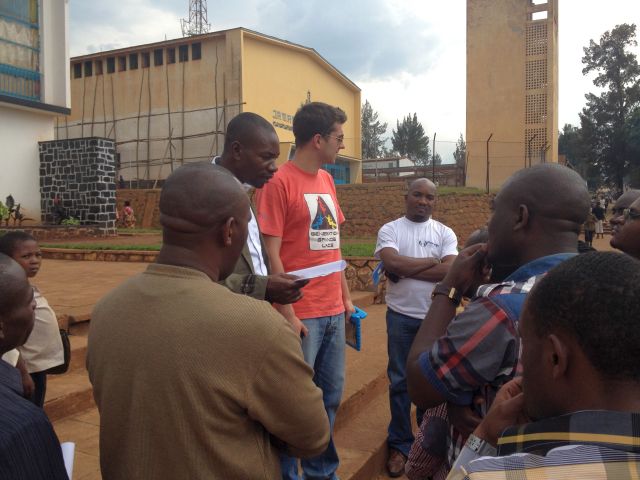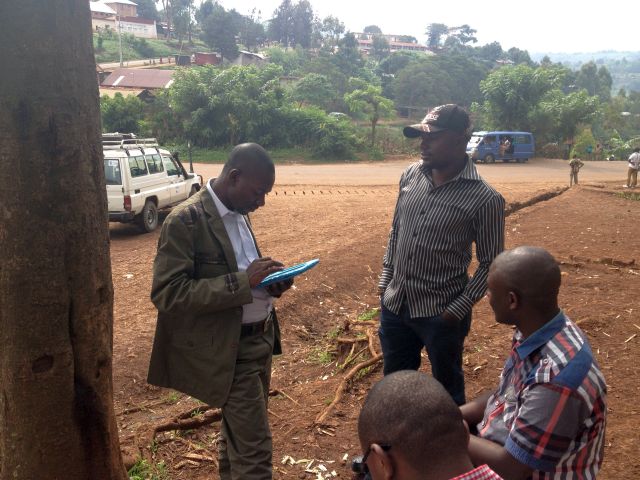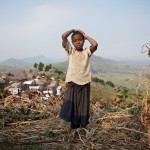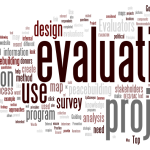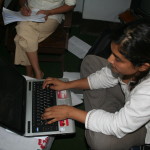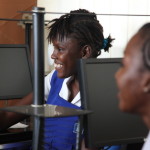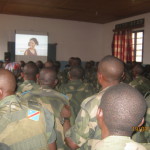iPads ensure impactful programs in DR Congo
By Brad Fondak
“It’s exciting to be on the cutting edge; I’ve done surveys like this for several organizations and no one else is doing this.”- Participant
Search collects data on the impact of our programs in the region. The data is crucial not only to ensure our programs are reducing violent conflict, but also for our donors and the communities we serve.
We have always collected this feedback the old-fashion way; a surveyor with a pen and a clipboard. The data is then copied from the handwritten form into a database for our evaluation teams to analyze. With hundreds of projects and thousands of surveys around the world, this is a daunting task even for the most efficient team.
But recently, we’ve found a better way, and because of it, I found myself halfway around the world from my home in the suburbs of Maryland to the city of Bukavu, the capital of South Kivu Province, in the Democratic Republic of the Congo.
We’re entering the 21st century of data collection, and with it brings innovative ways to gather information in the form of iPad Minis.
Our Bukavu office is our second largest in the world, and the epicenter of much of the work we do in the Eastern Congo to combat sexual violence, promote the rule of law, and provide paths to positive conflict resolution to end violent conflict.
The situation in the DRC is far from stable, and millions live in the midst of destructive conflict. Violence against women is endemic, and rebel groups fight the government and each other.
Our program ‘Vrai Djo’ promotes strength and understanding in men. ‘Mopila’, a highly successful comic book series, reaches a wide range of Congolese dealing with real-life situations such as good governance, working with the police, and sexual abuse in schools. These are just a few of the more than thirty different projects we do in the country a year.
Measurements and evaluations are required for each program in order to check progress and make the necessary changes.
I arrived at our office and found a survey team waiting with pen and paper, ready for an average day of training with a new survey in the morning and then heading out into the community to fine-tune the questions.
To their surprise, we introduced the new equipment and showed them how to use the new survey system. They were thrilled! Many of the surveyors had never held an iPad before, but with the ease of the system, they quickly picked it up as we went through a few practice runs.
After lots of questions and a thorough introduction by both the DRC evaluation chief and the team leader, it was time to hit the road.
We drove a short distance to the outskirts of Bukavu, a city of over a million people, to the smaller town of Bagira. Bagira is a great example of a typical Congolese city, and a perfect place to begin the project. It has hundreds and thousands of hardworking people in small shops, walking to and from their fields. Most of them live in small, one or two room houses without running water or consistent electricity.
In pairs of two, the surveyors headed into a different section of the neighborhood to locate and interview members of the community with their new tablets in tow.
After the initial survey collection, we received lots of feedback from the team:
“This is so much easier than before; I will be able to complete more surveys now,” said one person.
“It’s going to be so much easier to analyze and collect the data,” another added.
It felt incredible to be a part of this project. It was amazing to see a tool that I use daily bring so much assistance to the people performing the surveys, our standard of work in the region, and the communities we serve. This new method of data collection has great potential. We’re already looking to expand it throughout the DRC and in many of the other country programs.
_______________________
Brad Fondak is Webmaster with Search for Common Ground. He manages sfcg.org as well other internet and new media-related projects, and is based in Washington.

